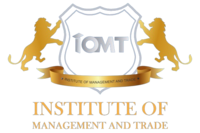
This role has a low level of AI exposure. Core skills such as adaptability, social intelligence, and complex physical tasks remain beyond the capabilities of current AI.
Explore all careersA Hydraulic Fitter fabricates and installs parts for hydraulic equipment, ensuring they meet specifications and function effectively across various industries like mining and construction.
Get qualified to work as a Hydraulic Fitter with a course recognised across Australia. Speak to a training provider to learn more.










In Australia, a full time Hydraulic Fitter generally earns $1,680 per week ($87,360 annual salary) before tax. This is a median figure for full-time employees and should be considered a guide only. As you gain more experience you can expect a potentially higher salary than people who are new to the industry.
 Courses.com.au Team
Courses.com.au Team
This industry has seen a slight decrease in employment numbers over the last five years. There are currently 62,000 people working in this field in Australia and many of them specialise as a Hydraulic Fitter. Hydraulic Fitters may find work across all regions of Australia.
Source: Australian Government Labour Market Insights
 Courses.com.au Team
Courses.com.au Team
If you’re interested in a career as a Hydraulic Fitter, consider enrolling in a Certificate IV in Engineering. You could also specialise your skills with a Certificate IV in Engineering (Fluid Power), a Certificate IV in Engineering (Maintenance) or a Certificate IV in Engineering (Instrumentation). You may also decide to further your skills with a Diploma of Engineering – Technical.
 Courses.com.au Team
Courses.com.au Team
Browse occupations related to Hydraulic Fitter



If you're considering a career in the hydraulic fitting industry, the range of Hydraulic Fitter courses in Tasmania offers diverse options tailored for both beginners and experienced individuals. For those starting out, popular beginner courses include the Certificate III in Engineering - Mechanical Trade (Fitting Trade) and the Certificate III in Engineering - Fixed and Mobile Plant Mechanic. These qualifications are designed to equip you with essential skills, laying a solid foundation for your future in this vital sector.
As your career progresses, you may want to explore advanced qualifications like the Certificate IV in Engineering or the Diploma of Engineering - Technical. Such courses will deepen your understanding of hydraulic systems, fluid power technologies, and advanced engineering principles, all of which are critical for high-level roles within the industry. Tasmania has several registered training organisations that offer these courses, ensuring that you receive quality education and training.
Beyond the coursework, exploring related job roles is essential for anyone venturing into the hydraulic fitting field. You might consider positions such as a Mechanical Fitter or an Electrical and Instrumentation Technician. Other exciting opportunities include working as an Automation Engineer or a Mechanical Engineer. With the skills gained from your studies, you'll be well-prepared to take on these roles.
Additionally, understanding the fields of study that intertwine with hydraulic fitting can offer insights into your career options. Explore Engineering courses that cover essential topics while considering opportunities in Mining, Manufacturing Engineering, and Oil and Gas. These sectors are crucial to Tasmania’s economy and often seek skilled professionals who can efficiently manage hydraulic systems.
The path to becoming a successful Hydraulic Fitter involves a blend of theoretical knowledge and practical skills. The array of Hydraulic Fitter courses in Tasmania creates an opportunity for professionals at all levels to enhance their career prospects, adapt to industry changes, and contribute significantly to both local and national markets. Arm yourself with the right qualifications, explore various job roles, and immerse yourself in the related fields available in Tasmania.